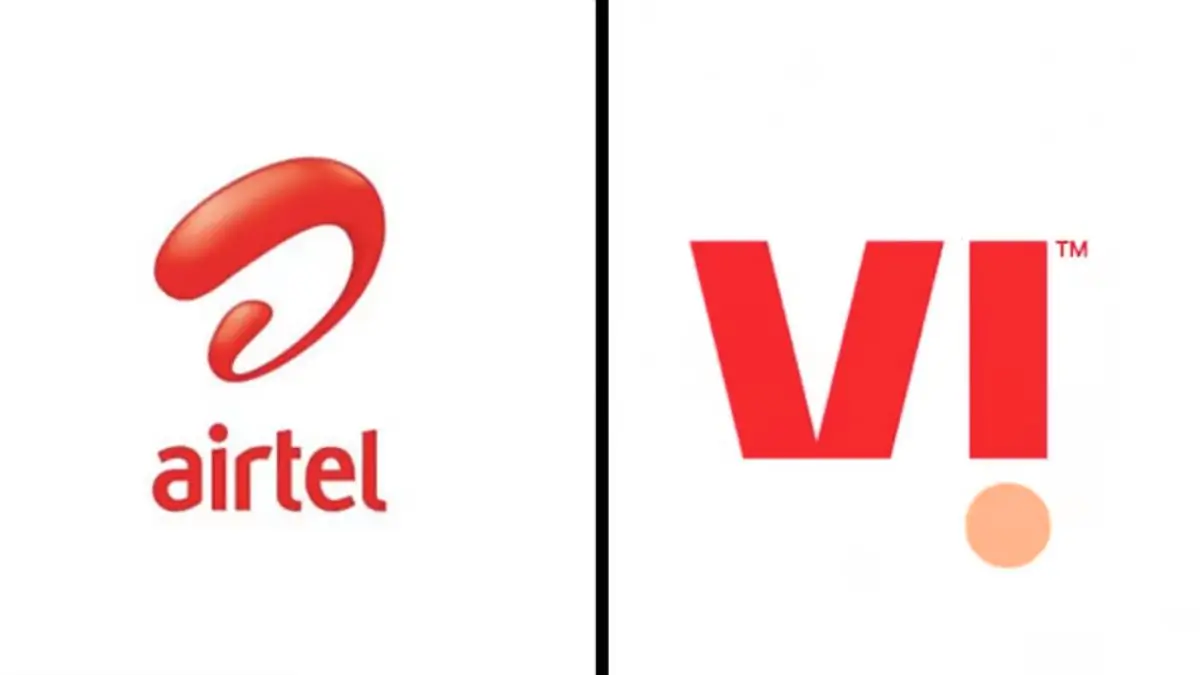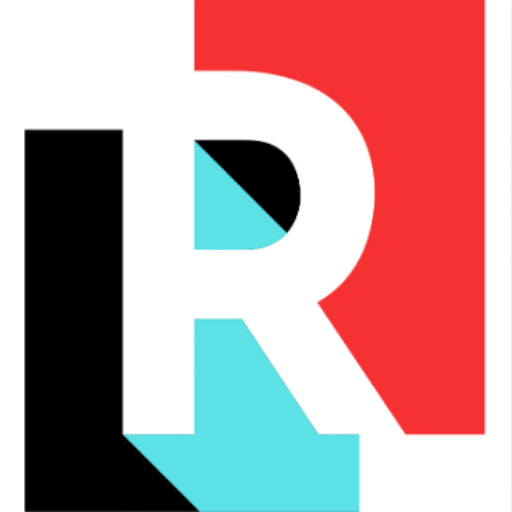Introduction
The hosting industry has changed a lot in the last ten years. Now, there are many providers to choose from, all claiming to offer great performance, unbeatable prices, and reliable service. The challenge is figuring out which ones are truly good and which ones are just using marketing tricks.
Choosing the right hosting provider isn’t just about finding the cheapest option or the one with the most impressive website. Your decision affects important things like how fast your website loads and how easily you can grow your business. If you choose the wrong provider, you might have to deal with frequent downtime, slow performance, and unresponsive support teams.
After spending a lot of time testing and evaluating hosting providers, I’ve found that three names always stand out: Hetzner, OVH, and Netcup. These European hosting companies have earned their reputation through years of dependable service and continuous improvement.
When comparing Hetzner vs OVH vs Netcup, you’ll see that each has its own strengths. This comparison goes beyond basic features to look at what really matters—performance metrics, security measures, scalability options, and actual reliability.
I’ve carefully assessed these three providers based on ten important factors. Whether you’re starting your first website or handling large enterprise infrastructure, you’ll find specific reasons why these providers deserve your attention.
1. Established Industry Presence and Reputation
When you’re evaluating hosting providers, the track record speaks volumes about what you can expect. The Hetzner history stretches back to 1997, when the company established its roots in Germany. Over two decades of continuous operation means they’ve weathered multiple technological shifts, economic changes, and evolving customer demands. You’re looking at a provider that has refined its services through real-world experience, not just theoretical promises.
OVH background reveals an equally impressive trajectory. As one of Europe’s largest cloud providers, OVH has built its reputation on delivering extensive infrastructure at competitive price points. The company’s growth from a regional player to a global hosting giant demonstrates its ability to scale operations while maintaining service quality. You benefit from their accumulated expertise in managing massive data center operations across multiple continents.
The Netcup founding in 2008 positions this provider as the youngest of the three, yet their decade-plus presence in the market shouldn’t be underestimated. They’ve carved out a distinct niche by focusing on traditional VPS solutions with reliable hardware performance. You get the advantage of working with a company that knows its strengths and delivers consistently within its chosen domain.
Hosting provider reputation isn’t built overnight—it’s earned through consistent performance, transparent communication, and reliable service delivery. Hetzner’s reputation centers on their modern cloud infrastructure and predictable performance metrics. You can trust their systems because thousands of users have tested them under real production workloads. Their consistent CPU performance and rapid provisioning times reflect years of infrastructure optimization.
OVH’s standing in the industry comes from their comprehensive service portfolio and global reach. You’re tapping into a provider that has proven it can handle everything from small VPS instances to enterprise-level dedicated servers. Their extensive data center network demonstrates a commitment to long-term infrastructure investment.
Netcup’s reputation rests on delivering cost-effective solutions without cutting corners on hardware quality. You appreciate their straightforward approach to VPS hosting, backed by reliable German engineering standards. Their longevity in a competitive market proves they understand what budget-conscious users need.
The years these providers have spent in the industry translate directly into operational maturity. You’re not dealing with startups experimenting with your data—you’re working with established entities that have
2. Diverse Hosting Solutions to Fit Different Needs
When you’re searching for the right hosting provider, the breadth of available solutions can make or break your decision. Hetzner, OVH, and Netcup each bring distinct portfolios to the table, catering to different technical requirements and business models.
Hetzner’s Modern Cloud Infrastructure
Hetzner positions itself as a comprehensive hosting provider with a strong emphasis on cloud services. Their offerings span traditional web hosting options, robust VPS hosting, and powerful dedicated servers. What sets Hetzner apart is their cloud-native approach—you get access to block storage, load balancers, and seamless scaling capabilities that modern applications demand. Their VPS hosting delivers consistent performance with fast provisioning times, making them ideal if you need quick deployment for development environments or production workloads.
Pros:
- Complete ecosystem with modern cloud features
- Fast server provisioning (average 25 seconds)
- Excellent for developers needing flexible infrastructure
Cons:
- May be overkill for simple website hosting needs
- Learning curve for users unfamiliar with cloud concepts
OVH’s Extensive Service Portfolio
OVH takes a different approach with one of the most extensive product catalogs in the industry. Their dedicated servers come in numerous configurations, from budget-friendly options to enterprise-grade hardware. The VPS hosting tiers accommodate everyone from hobbyists to large-scale operations. OVH’s cloud services include object storage, private cloud solutions, and managed Kubernetes—giving you enterprise-level capabilities at competitive price points.
Pros:
- Widest range of hosting solutions available
- Scalable options for growing businesses
- Strong enterprise features
Cons:
- Interface complexity due to extensive options
- Can be overwhelming for beginners
Netcup’s Traditional VPS Excellence
Netcup focuses on delivering solid VPS hosting and web hosting options without the complexity of extensive cloud services. Their approach appeals to users who want reliable virtual servers without unnecessary bells and whistles. While they don’t offer block storage or load balancers like Hetzner, their dedicated servers and VPS packages provide dependable hardware performance at
3. Global Data Center Footprint for Enhanced Performance
The physical location of your hosting infrastructure directly impacts your website’s performance, and this is where Hetzner vs OVH vs Netcup reveal distinct approaches to their global hosting infrastructure.
Hetzner’s Strategic Continental Presence
Hetzner operates six data centers strategically positioned across three continents. You’ll find their facilities in:
- Europe: Germany (multiple locations) and Finland
- Asia: Singapore
- North America: United States
This distribution gives you solid coverage across major economic regions. When you host with Hetzner, you’re leveraging data centers locations that minimize latency for audiences in Europe, North America, and Asia-Pacific. The German and Finnish facilities serve European traffic exceptionally well, while the Singapore location provides crucial server proximity benefits for Southeast Asian markets.
OVH’s Expansive Global Network
OVH takes global reach to another level with one of the most extensive data center networks in the hosting industry. Their infrastructure spans:
- Multiple locations across Europe (France, Germany, Poland, UK)
- North American facilities in Canada and the United States
- Asia-Pacific presence in Singapore and Australia
You get unmatched geographical diversity with OVH. This extensive footprint means you can position your applications closer to your end users, regardless of where they’re located. The server proximity benefits become apparent when you’re serving a truly global audience—your European visitors access content from European servers while Asian users connect to regional infrastructure.
Netcup’s Focused Regional Approach
Netcup maintains a more concentrated presence with data centers in:
- Europe: Germany, Austria, and the Netherlands
- North America: United States
While Netcup’s global hosting infrastructure is smaller compared to Hetzner and OVH, their facilities are modern and well-maintained. You’ll notice their strength lies in serving European markets, where they’ve established a solid reputation. The U.S. presence extends their reach, though their Asian market coverage remains limited.
Impact on Your Performance Metrics
The relationship between data centers locations and performance is straightforward: closer servers mean faster load times. When you choose between these providers, consider where your primary audience resides. A European business benefits immensely from
4. Performance and Reliability Metrics That Matter
When you’re evaluating hosting providers, raw numbers tell the real story. You need to look beyond marketing promises and examine actual performance data that impacts your daily operations.
CPU Performance Consistency
Hetzner stands out with its remarkably stable CPU performance. During testing, their servers deliver consistent benchmark results with minimal variance between measurements. You get what you pay for—no surprises, no sudden performance drops during peak hours. The average provisioning time of 25 seconds means you can spin up new instances almost instantly when you need to scale.
Netcup offers reliable hardware performance that many users appreciate for traditional workloads. While the infrastructure might not feature the latest cloud-native architecture, you’ll find the CPU performance remains dependable for standard applications. The hardware doesn’t fluctuate wildly, which matters when you’re running production environments that demand predictability.
OVH provides competitive CPU performance across their extensive product range. Their infrastructure supports various workload types, from basic web hosting to intensive computational tasks. You’ll notice the performance varies slightly depending on which product tier you select, but the consistency within each tier remains solid.
Hardware Reliability Standards
The physical infrastructure backing your hosting matters just as much as the specifications. Hetzner operates modern data centers with enterprise-grade hardware, resulting in fewer hardware-related incidents. You experience less downtime from failed components because they maintain strict quality standards.
Netcup has built its reputation on dependable hardware choices. Despite criticisms about their user interface, the underlying physical infrastructure rarely disappoints. You can count on their servers to keep running without unexpected hardware failures disrupting your services.
OVH manages one of the largest infrastructure footprints globally, maintaining thousands of servers across multiple continents. Their scale allows them to implement redundancy measures that protect you from individual hardware failures.
Server Uptime Guarantees
All three providers offer uptime commitments that meet industry standards. Hetzner’s infrastructure design prioritizes availability through redundant network connections and power supplies. You’ll find their actual uptime typically exceeds their stated guarantees.
Netcup and OVH similarly provide uptime SLAs that protect your investment. The key difference lies in how each provider handles maintenance windows and planned downtime. You should review each provider’s policies carefully to understand how they might impact your services during scheduled maintenance events or upgrades.
5. Robust Security Features to Protect Your Data
When you’re hosting your website or application, security isn’t just a nice-to-have feature—it’s absolutely essential. Cyber threats are constantly evolving, and you need a hosting provider that takes protection seriously. Let me walk you through what Hetzner, OVH, and Netcup bring to the table when it comes to keeping your data safe.
1. DDoS Protection
DDoS Protection stands as a fundamental security layer across all three providers. Here’s how each provider handles DDoS attacks:
- Hetzner implements comprehensive DDoS protection that monitors traffic patterns and automatically mitigates attacks before they can impact your services. You don’t have to configure anything manually—the protection works in the background, filtering malicious traffic while allowing legitimate requests through.
- OVH has built its reputation partly on its anti-DDoS infrastructure, which they’ve developed over years of combating large-scale attacks. Their system can handle massive volumetric attacks that would cripple many other providers.
- Netcup also includes DDoS protection as a standard feature, ensuring your VPS remains accessible even during attack attempts.
2. Backups in Hosting
Backups in hosting represent your safety net when things go wrong. Here’s what each provider offers in terms of backup solutions:
- Hetzner offers automated backup solutions that you can enable with a single click, creating snapshots of your entire server that you can restore instantly if needed. The backup system runs independently from your main server, so even if your primary instance fails, your data remains secure.
- OVH provides similar backup capabilities with multiple retention options, allowing you to choose how many backup versions you want to maintain.
- Netcup includes backup features in their hosting packages, giving you the ability to schedule regular backups and restore your data when necessary.
3. SSH Key Authentication
SSH Key Authentication is available across all three providers, replacing traditional password-based access with cryptographic keys. Here’s how each provider handles SSH key authentication:
- You can set up SSH keys during the initial server provisioning with Hetzner and Netcup, adding an extra layer of security from day one.
- This authentication method makes it exponentially harder for unauthorized users to access your servers.
4. Data Center Security
Data Center Security extends beyond digital protections. These providers maintain physical security measures at their facilities, including 24/7 monitoring, restricted access controls, and redundant power systems. Here’s where each provider’s data centers are located:
- Hetzner’s data centers are in Germany, Finland, Singapore, and the United States.
- All Hetzner’s data centers meet strict security standards.
6. Flexible Billing and Payment Options for Cost Control
When you’re managing hosting costs, the billing structure can make or break your budget. I’ve worked with all three providers, and their approaches to pricing flexibility differ significantly—each catering to distinct financial planning needs.
1. Hetzner: Hourly Billing for Unmatched Control
Hetzner stands out with its hourly billing hosting model that charges you only for the resources you actually use. You can spin up a server, run it for a few hours to test your application, and pay just cents instead of committing to a full month. This granular billing approach gives you unprecedented control over your hosting expenses. The hourly rate converts to a monthly cap, so you’ll never pay more than the advertised monthly price even if you run your server 24/7. I’ve found this particularly valuable when running development environments that don’t need to stay online constantly.
2. OVH: Predictable Monthly Costs with Commitment Options
OVH takes a different approach with primarily monthly billing cycles, though they offer some flexibility through their various commitment options. You can choose between:
- Monthly subscriptions with no long-term commitment
- Annual plans that provide cost savings (typically 10-15% discount)
- Multi-year contracts for maximum savings on dedicated servers
The trade-off here is predictability versus flexibility. You’ll know exactly what you’re paying each month, which simplifies budgeting for established projects.
3. Netcup: Similar Benefits as Hetzner
Netcup mirrors Hetzner’s hourly billing model for VPS services, giving you similar cost control benefits. You can deploy servers on-demand and destroy them when they’re no longer needed. The pricing transparency is excellent—you see exactly what each resource costs per hour and per month upfront.
When comparing Hetzner vs OVH vs Netcup on pricing flexibility, both Hetzner and Netcup win for short-term projects and variable workloads. You’re not locked into paying for resources you don’t need. OVH suits you better if you prefer stable, predictable monthly expenses and can commit to longer terms for better rates.
Payment Methods
All three providers accept standard payment methods including credit cards, PayPal, and bank transfers. Hetzner and Netcup both support SEPA direct debit for European customers, automating your payments without the hassle of manual transactions each month. OVH additionally accepts cryptocurrency payments
7. Advanced Infrastructure Features Supporting Modern Needs
Modern hosting demands go beyond basic server provisioning. You need infrastructure components that can handle complex workloads, distribute traffic efficiently, and scale storage independently from compute resources.
Hetzner leads the pack with a comprehensive suite of cloud-native features designed for contemporary applications. The platform offers block storage that you can attach to your servers, allowing you to scale storage capacity without upgrading your entire instance. This separation of storage and compute gives you the flexibility to expand disk space on-demand while maintaining the same server specifications.
The inclusion of load balancers in hosting infrastructure is where Hetzner truly shines. You can distribute incoming traffic across multiple servers, ensuring high availability and preventing any single point of failure. This feature becomes critical when you’re running production applications that can’t afford downtime. Hetzner’s load balancers integrate seamlessly with their cloud ecosystem, making it straightforward to implement redundancy strategies.
OVH takes a different approach with its enterprise-grade infrastructure features. The provider offers:
- Advanced networking capabilities including private networks and vRack technology
- Object storage solutions for scalable data management
- Kubernetes integration for container orchestration
- Automated backup systems with customizable retention policies
OVH’s infrastructure is built to support large-scale deployments. You get access to features typically found in enterprise environments, making it suitable for businesses that need robust technical capabilities without the enterprise price tag.
Netcup focuses on traditional VPS infrastructure with a more streamlined feature set. While the provider doesn’t offer block storage or load balancers, you still get essential features like automated backups and DDoS protection. The infrastructure emphasizes reliability over cutting-edge cloud features, which works well if you’re running conventional web applications or need straightforward hosting without complex orchestration requirements.
The technical architecture varies significantly between these providers. Hetzner’s modern cloud infrastructure supports microservices architectures and containerized applications. OVH provides the tools you need for hybrid cloud deployments and complex networking scenarios. Netcup delivers solid traditional hosting infrastructure that prioritizes stability and performance consistency.
Your choice depends on your technical requirements. If you’re building cloud-native applications that need elastic scaling and advanced networking, Hetzner or OVH will serve you well. On the other hand, if you’re running legacy systems or prefer a simpler setup, Netcup may be the right fit.
8. User Experience Matters: Management Tools Comparison
The quality of your hosting experience depends heavily on the tools you use to manage your servers daily. You need intuitive interfaces that don’t require a steep learning curve, and you want control panels that make complex tasks feel simple.
Hetzner’s Cloud Console
Hetzner delivers a clean, modern interface that prioritizes simplicity without sacrificing functionality. The user interface usability stands out immediately—you’ll find yourself navigating between servers, configuring firewalls, and managing backups with minimal clicks. The dashboard presents critical information at a glance, showing server status, resource usage, and billing details in a well-organized layout.
The control panel features include:
- Quick server deployment with pre-configured templates
- Intuitive network configuration for private networking and floating IPs
- Straightforward snapshot management for easy backups
- Real-time resource monitoring with clear graphs and metrics
- API documentation integrated directly into the interface
You’ll appreciate how Hetzner’s console responds quickly to your actions. The provisioning speed translates into the management interface itself—actions execute rapidly, and you’re not left waiting for confirmation screens.
OVH’s Management Interface
OVH provides a comprehensive control panel that reflects its extensive service catalog. The interface can feel overwhelming at first due to the sheer number of options available. You’ll encounter multiple sections for different product lines, which makes sense given OVH’s broad portfolio but requires some time to master.
The control panel features include detailed configuration options for advanced users who need granular control. You can manage everything from basic server settings to complex networking configurations. The interface supports multiple languages and includes robust documentation links throughout.
Some users find the navigation structure less intuitive compared to competitors, particularly when switching between different service types. The learning curve exists, but the payoff comes in the form of powerful management capabilities once you’re familiar with the layout.
Netcup’s Customer Control Panel
Netcup takes a more traditional approach to server management. The interface feels functional rather than flashy, focusing on getting tasks done efficiently. You’ll notice the design hasn’t received the same modern refresh as some competitors, which has drawn criticism from users expecting contemporary aesthetics.
The user interface usability may not be as visually appealing as others, but it gets the job done effectively. You’ll find all the necessary tools and options readily available without any unnecessary distractions or complexities.
While Netcup’s control panel may lack some of the bells and whistles found in other platforms, it compensates with its straightforwardness and reliability. This makes it suitable for users who prioritize practicality over visual design.
Conclusion
When choosing a hosting provider, it’s essential to consider not only their server performance but also the quality of their management tools. A user-friendly interface can significantly enhance your experience by making server administration tasks more efficient and less time-consuming.
Hetzner’s Cloud Console stands out for its simplicity and responsiveness, while OVH offers extensive customization options through its comprehensive control panel. Netcup may not have the most modern design but remains functional in delivering essential features.
Ultimately, finding a balance between powerful capabilities and ease of use is key when evaluating management tools across different hosting providers. Incorporating elements like [real-time resource monitoring](https://pathlock.com/learn/real-time-monitoring
9. Scalability Options for Future-Proof Hosting Choice
Your hosting needs today might look completely different six months from now. I’ve seen countless businesses struggle because they chose a provider that couldn’t scale with their growth. When comparing Hetzner vs OVH vs Netcup, understanding their scalability approaches becomes critical for long-term success.
Hetzner’s Modern Cloud Approach
Hetzner delivers scalable cloud infrastructure in VPS through its cloud platform that lets you adjust resources on the fly. You can upgrade your server’s CPU, RAM, and storage without migrating to a completely new instance. The platform supports:
- Vertical scaling with instant resource adjustments
- Horizontal scaling through load balancers
- Automated snapshots for safe scaling operations
- API-driven infrastructure management for programmatic scaling
The 25-second average provisioning time means you can spin up additional servers almost instantly when traffic spikes hit your applications. I’ve used this feature during product launches, and the speed makes a real difference.
OVH’s Enterprise-Grade Flexibility
OVH provides scalable cloud infrastructure in VPS that caters to enterprises expecting massive growth. Their Public Cloud offering includes auto-scaling capabilities that adjust resources based on predefined metrics. You get:
- Multiple instance types optimized for different workloads
- Kubernetes integration for container orchestration
- Object storage that scales to petabytes
- Private networks for secure multi-server architectures
The breadth of OVH’s infrastructure means you can start with a basic VPS and eventually migrate to dedicated servers or hybrid cloud setups without changing providers.
Netcup’s Traditional Scaling Path
Netcup takes a more conventional approach to scalability. You can upgrade between their predefined VPS tiers, but the process requires more manual intervention compared to Hetzner or OVH. Their scaling options include:
- Package upgrades to higher-tier VPS plans
- Additional storage volumes
- Multiple VPS instances for load distribution
- Dedicated server migration paths for extreme growth
While Netcup doesn’t offer the same cloud-native scaling features, their hardware reliability means you can confidently run resource-intensive applications on higher-tier plans.
Choosing Your Scaling Strategy
10. Cost Efficiency Without Compromising Quality Standards
Price matters when you’re selecting a hosting provider, but you shouldn’t sacrifice quality for a few dollars saved. Hetzner, OVH, and Netcup have mastered the art of delivering affordable hosting providers solutions without cutting corners on performance or reliability.
Hetzner’s Value Proposition
Hetzner’s pricing structure stands out in the competitive landscape. Their VPS plans start at remarkably low monthly rates while maintaining enterprise-grade hardware. You get dedicated CPU resources, NVMe storage, and generous bandwidth allocations at price points that often undercut competitors by 30-40%. The hourly billing model means you only pay for what you use, making it ideal when you’re testing new projects or running temporary workloads.
The fast provisioning time of 25 seconds translates to operational efficiency—you’re not wasting time waiting for servers to spin up. This speed, combined with their transparent pricing (no hidden fees or surprise charges), creates genuine value for your investment.
OVH’s Competitive Edge
OVH has built its reputation on delivering massive infrastructure at accessible prices. Their economies of scale—operating their own data centers and manufacturing their own servers—allow them to pass savings directly to you. You’ll find their dedicated server offerings particularly compelling, with bare-metal servers available at prices that rival VPS plans from other providers.
The range of payment options and flexible contracts accommodate different business models. Whether you’re a startup watching every expense or an established company planning long-term infrastructure, OVH’s pricing tiers adapt to your financial situation.
Netcup’s Budget-Friendly Approach
Netcup positions itself as the cost-conscious choice without compromising on essential features. Their VPS packages include DDoS protection and backup solutions as standard—features that other providers often charge extra for. You’re getting comprehensive protection and data security built into the base price.
The traditional VPS model they employ keeps costs predictable. You know exactly what you’re paying for each month, with no complex pricing calculators or variable costs based on usage spikes. This straightforward approach helps you budget accurately and avoid unexpected bills.
The Real Cost Calculation
When comparing these affordable hosting providers, look beyond the sticker price. Factor in the included features
Conclusion
Choosing the best hosting provider requires you to look beyond surface-level features and dig into what truly matters for your specific use case. The Hetzner vs OVH vs Netcup comparison reveals three distinct approaches to hosting excellence, each with its own strengths.
You need to ask yourself what drives your hosting decision:
- Performance-focused projects benefit from Hetzner’s consistent CPU benchmarks and modern cloud infrastructure
- Global reach and scalability find their match in OVH’s extensive data center network and comprehensive service portfolio
- Budget-conscious deployments thrive with Netcup’s cost-effective traditional VPS solutions backed by reliable hardware
Your requirements shape the right choice. A high-traffic e-commerce site demands different resources than a personal blog or development environment. You might prioritize lightning-fast provisioning times, or perhaps your focus centers on predictable monthly costs with hourly billing flexibility.
Take time to evaluate your technical needs, budget constraints, and growth projections. Each provider offers trial periods or entry-level plans that let you test their infrastructure firsthand. You can experience their control panels, measure actual performance, and assess support responsiveness before committing long-term.
Ready to make your move? Start with the provider that aligns with your primary goal—whether that’s cutting-edge performance, global presence, or maximum value. Your hosting foundation awaits.
FAQs (Frequently Asked Questions)
What are the main differences between Hetzner, OVH, and Netcup in terms of hosting solutions?
Hetzner, OVH, and Netcup each offer a diverse range of hosting solutions including VPS hosting, dedicated servers, cloud services, and web hosting options. The choice depends on your specific needs: Hetzner is known for reliable dedicated servers and affordable VPS options; OVH provides extensive cloud services with global reach; Netcup offers competitive pricing with solid web hosting packages. Evaluating their offerings helps match your requirements effectively.
How does the global data center footprint of Hetzner, OVH, and Netcup affect performance?
The location and number of data centers significantly impact latency and overall server performance. OVH boasts a broad global infrastructure offering low latency worldwide. Hetzner primarily focuses on European data centers with high reliability, while Netcup also centers on Europe but maintains robust infrastructure. Choosing a provider with data centers near your target audience ensures enhanced website speed and better user experience.
What security features do Hetzner, OVH, and Netcup provide to protect my data?
All three providers implement robust security measures including DDoS protection to mitigate cyber threats and regular backups to safeguard your website data. Their infrastructures are designed to maintain high security standards ensuring your data remains protected against attacks and accidental loss.
How flexible are the billing and payment options among Hetzner, OVH, and Netcup?
Hetzner, OVH, and Netcup offer flexible billing models catering to various budgetary needs. For instance, hourly billing options allow you to pay only for what you use, which is ideal for short-term projects or fluctuating workloads. This flexibility enables better cost control without compromising service quality.
What advanced infrastructure features support modern hosting needs in these providers?
Hetzner, OVH, and Netcup provide advanced technical features like block storage for scalable data management and load balancers that optimize traffic distribution across servers. These features enable enhanced scalability and performance optimization suitable for growing businesses requiring reliable infrastructure.
How do Hetzner, OVH, and Netcup compare in terms of user experience and management tools?
Each provider offers user-friendly control panels designed for seamless server management. The usability varies slightly: Hetzner’s interface is straightforward for beginners; OVH provides comprehensive tools suited for advanced users; Netcup balances simplicity with functionality. Selecting a provider with an intuitive management interface can streamline your hosting administration tasks.
















